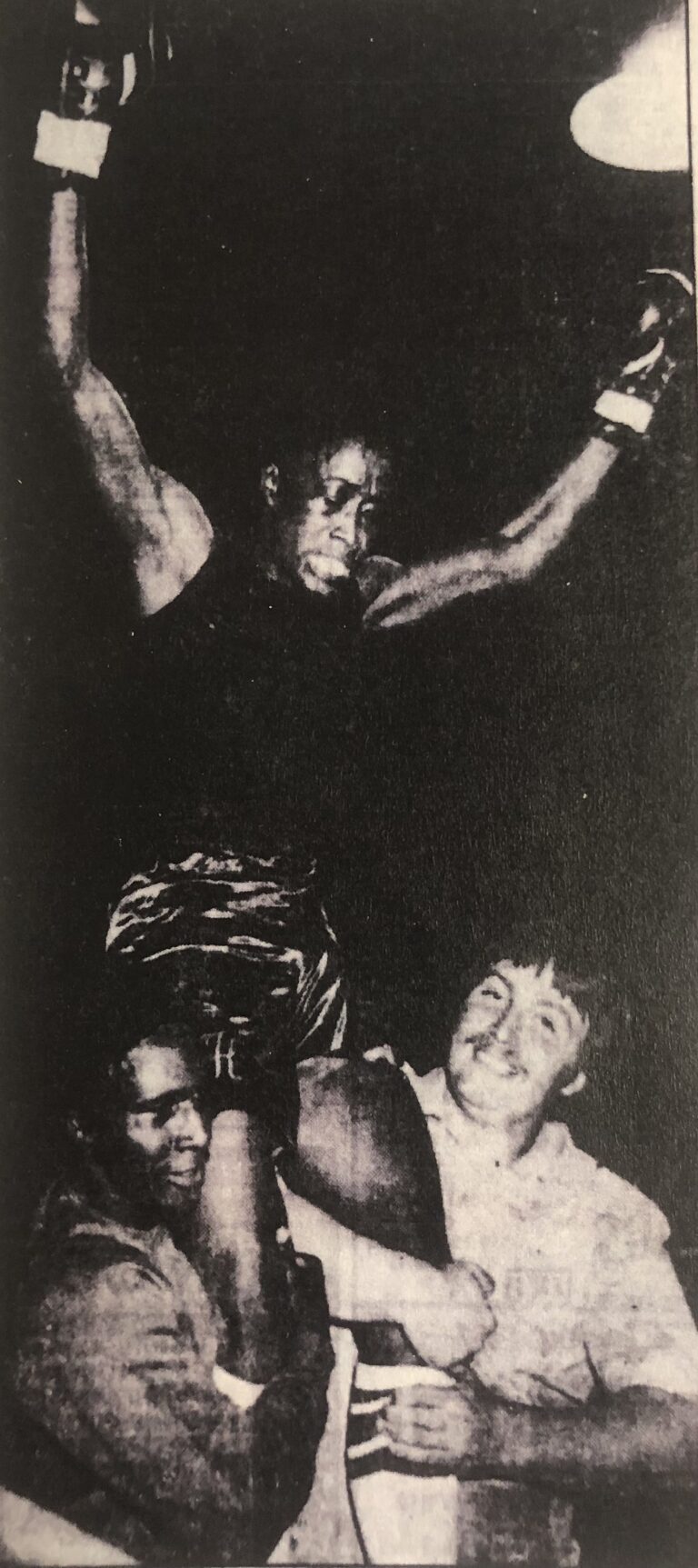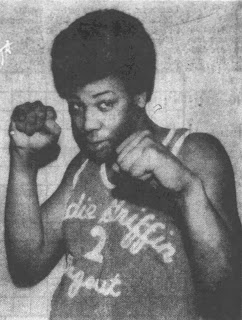PORTLAND, OR–(May 6, 2014) Barbara Buttrick, 84 year old Englishwoman and ground breaking pioneer in the sport of Women’s boxing, has been elected to the initial class of the newly established International Women’s Boxing Hall of Fame. She will be inducted, along with six other female honorees, at a ceremony on July 10 in Fort Lauderdale, FL, in conjunction with a scheduled national Female Golden Gloves tournament. Buttrick, who founded the Women’s International Boxing Foundation (WIBF) in 1989, said from her home in Miami, FL, “I’m very excited and proud to be chosen for the first class of this Hall of Fame, which, I believe, going forward, will serve as a lasting recognition of the athletes and others in the boxing community who have contributed to and supported the sport of Women’s boxing.”

Buttrick enters the IWBHF as one of six former professional fighters being inducted in the initial class: Christy Martin, Lucia Rijker, Regina Halmich and Bonnie Canino from the “modern” era of the sport, the decades of 1990s and 2000, along with Jo-Ann Hagen, a boxer who competed professionally at the same time as Buttrick, in the 1950s. Christy Halbert, the seventh inductee also spent, what she describes as a “short career” as in the professional ring, but is being honored, primarily, as a highly sought after boxing coach and for the pivotal role she played in the successful effort to get the sport of female boxing included in the 2012 Olympics.

Barbara Buttrick grew up in England and, as a teen, following a brief foray with football (soccer), gravitated towards boxing, partially, as a result of her father’s interest in the sport. Her teenage bedroom walls were festooned with cutouts of boxers and her evolution to the sport eventually resulted in competitive bouts in the ring. However, as Buttrick is quick to note, those early bouts were largely limited to “boxing booths and small shows,” given the apathy English promoters showed towards females in the boxing ring. It soon became apparent to the fledging boxer that if she was to attain professional status, it would most probably be somewhere other than England. Buttrick adds, “As it turned out, recognition of females in the professional ring in England didn’t happen until Jane Couch sued for the right to fight in the 1990s.”
Thus in 1952, Buttrick embarked for the United States and discovered only slightly better potential for female boxers. But opportunities, particularly for females with clearly defined ring skills, did exist. In fact, one of the highly publicized female bouts in 1954 was an eight round bout between Buttrick and her fellow IWBHF inductee, Jo-Ann Hagen. The bout, held in Calgary Alberta, Canada was broadcast throughout that country.

Hagen, who enjoyed a height and weight advantage won the decision and was quoted after the bout, “She (Buttrick) was a real battler, I’m sorry we both couldn’t have won.” Records of female boxers in those years are, today, largely non-existent (Boxrec lists only two bouts for Buttrick, a win and a draw with Phyliss Kugler), while Buttrick puts her overall record at 30 wins, one loss (Hagen) and the draw with Kugler. Despite her success and growing renown in the US, back home in England, the attitude toward female boxers persisted. In 1957, Freddie Mills, ranking English light heavyweight fighter, felt compelled to pen an opinion, in the London Daily Mirror, stating he did not recognize female boxing as legitimate and advised Buttrick to “forget” about the sport. Fortunately that was not the final paragraph of the story. In 2010, in conjunction with the announcement of the inclusion of female boxing in the 2012 Olympics, the Daily Mirror headlined a story, “We’re Sorry Barbara” retracting Mills’ long ago comments and praising Buttrick’s extensive career in the professional ring.
While it took the London Daily Mirror 53 years to correct the prejudicial diatribe leveled, in it’s pages, at Buttrick, the International Women’s Boxing Hall of Fame got it right the first time. Buttrick was an overwhelming choice for inclusion in the initial class of the Hall. It was, in part, recognition of the many hurdles Buttrick overcame in her quest toward the professional boxing ring. And it was that quest that contributed to laying the groundwork for the path that was followed, over the years and to this day, by what has become the deep well of ring talent that populates the sport of Women’s boxing. That should be crystal clear to all those in attendance in July at the National Golden Gloves program and the IWBHF induction ceremony. Barbara Buttrick, along with her co-inductees, can all take justified pride in the honors bestowed upon them and, synergistically, in the opportunities, such as a female Golden Gloves tournament, that exists today for their heirs.





